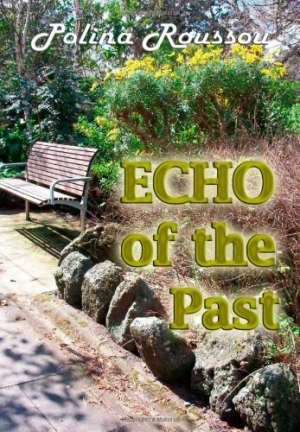
Echo of the Past
Absorbing, memorable, and moving, Echo of the Past is a fully imagined tale of lives caught in the jaws of history.
The tragic and entwined histories of twentieth-century Russia and Germany are brought poignantly to life in in Polina Roussou’s slim but affecting novel, Echo of the Past.
After a brief prologue set in the present, the story begins in earnest, opening on thirteen-year-old Ben Razin, a captive in a concentration camp in Nazi-occupied Russia. The prison is a feeder camp that supplies Nazi doctors with living subjects for medical experimentation, and death by selection is the order of the day.
Ben survives despite the harrowing odds, but the hidden strands of his story affect his entire life. From this beginning, the story moves back in time, spanning events from WWI and the Russian Revolution through WWII to the present, and moving the narrative from Russia to Germany and back again.
As the story unfolds, Ben ceases to be the story’s sole focal point. The cast expands to include past, present, and future generations of the family Ben lost in the war, as well as wives, teachers, colleagues, and friends. This closely connected group of characters is the heart of the story, and it is through their experiences that the horrors of war, fascism, and communism are vividly brought to life.
Each character is deftly and realistically portrayed, and their modest longings—for friendship, sufficient food, and freedom from being informed on or sent to a gulag—are so ordinary, they create a deeper impression of totalitarianism’s brutality than any battlefield scene could.
An outstanding feature of the book is the way characters are woven into the story before they are actually introduced, then developed through their thoughts and actions, rather than through intrusive descriptions. Their presence seems organic to the book, rather than stage-managed in service of the plot, lending an unusually realistic edge to events that might otherwise seem part of a remote and unfathomable past.
Adding to the sense of realism is the writing style, which is deceptively simple and devoid of both melodrama and literary flourishes. This leaves space for each character’s story to shine through, creating emotional impact without over-dramatizing. The reading pace is swift and absorbing because true curiosity about the characters’ fates has been developed.
The focus shifts from one group of characters to another, then doubles back to brush in details previously missing, but the true plot remains obscure until late in the book. When it surfaces, the book feels somewhat rushed, and the denouement is improbable and murky despite its explanation. This hardly matters, as the overarching story is little more than a framework for the stories of the characters whose smaller fates are far more significant.
Absorbing, memorable, and moving, Echo of the Past is a fully imagined tale of lives caught in the jaws of history.
Reviewed by
Susan Waggoner
Disclosure: This article is not an endorsement, but a review. The publisher of this book provided free copies of the book and paid a small fee to have their book reviewed by a professional reviewer. Foreword Reviews and Clarion Reviews make no guarantee that the publisher will receive a positive review. Foreword Magazine, Inc. is disclosing this in accordance with the Federal Trade Commission’s 16 CFR, Part 255.
